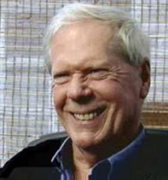TAPPER: So, one of the topics that you chose to talk a lot about, especially confronting Senator Warren on was your push, your call for Twitter to suspend the account of President Trump. Why was that important?
HARRIS: What's important about it is this, Jake, and I say this as a former prosecutor. You have to take seriously witness intimidation. You have to take seriously an attempt to obstruct justice. You have to take seriously a threat to a witness and really to their safety and potentially their life.
And when you're talking about Donald Trump, he has 65 million Twitter followers. He has proven himself to be willing to obstruct justice. Just ask Bob Mueller. You can look at the manifesto from the shooter in El Paso to know that what Donald Trump says on Twitter impacts people's perceptions about what they should and should not do.
And we're talking about a private corporation, Twitter, that has terms of use, and as far as I'm concerned and I think most people would say, including members of Congress who he has threatened --
TAPPER: Mm-hmm.
HARRIS: -- that he has lost his privileges and it should be taken down. The bottom line is that you can't say that you have one rule for Facebook and you have a different rule for Twitter. The same rule has to apply, which is that there has to be a responsibility that is placed on these social media sites to understand their power. They are directly speaking to millions and millions of people without any level of oversight or regulation, and that has to stop.
TAPPER: He is the president of the United States, and I would -- you know, you might argue, first of all, he doesn't --
HARRIS: He does not have a right to commit a crime because he is president of the United States. He does not have the right to threaten witnesses and threaten their safety because he is president of the United States.
In fact, that's the very problem with Donald Trump. He thinks he's above the law, and we cannot keep reinforcing that. And anyone who wants to say, well, this is a matter of free speech, you are not free to threaten the life of a witness. That is a crime.
TAPPER: But how did he threaten the life of a witness? By calling for --
HARRIS: The way that he has talked about this -- the whistleblower.
TAPPER: Whistleblower?
HARRIS: Absolutely.
TAPPER: You think that puts the whistleblower's life in danger?
HARRIS: I absolutely do. Let's remember this has actually been the subject of certainly discussion in the open about what should be the precautions that are taken to ensure the safety of the whistleblower because of a concern about these threats.

www.paulcraigroberts.org
